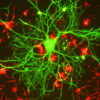A group of researchers at the University of São Paulo (USP) in Brazil set out to investigate the prevalence of dysfunctional dietary behavior among practitioners of vegan diets, which have become popular in this sustainability-conscious age.
According to their research published in the journal JAMA Network Open, they identified “disordered eating attitudes” among only 0.6% of almost 1,000 participants, or less than a tenth of the estimated proportion of the Brazilian population (6.5%).
The authors explain that they wanted to understand the motivations behind adhering to a vegan diet, and to identify any disordered eating attitudes among individuals who do so. A hypothesis raised in the literature is that veganism could be used to legitimize rejection of certain foods and social situations that involve eating. In this sense, it may mask dysfunctional dietary behavior and even eating disorders by facilitating restriction.
The researchers used an online questionnaire to collect socio-demographic data (such as education, income and location, among others) and information on eating habits for 971 subjects aged 18 or older from all parts of Brazil.
By analyzing the data, they were able to arrive at the percentage of vegan diet followers reporting dysfunctional dietary behavior and therefore at risk for the development of eating disorders.
“In this cross-sectional study, as opposed to previous suggestions, levels of disordered eating were very low among vegans, although certain food choice motives were associated with disordered eating attitudes. Understanding the motivations of adhering to diets that may impose restrictions, which include vegan diets, may help tailor interventions focused on promoting healthy eating and preventing or treating disordered eating,” the researchers determined.


